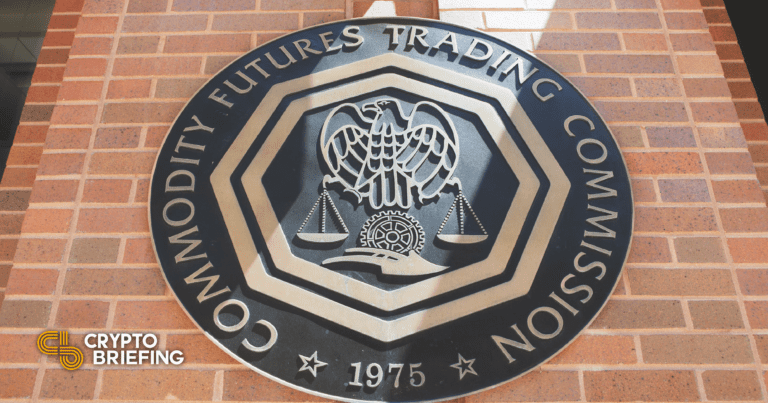Key Takeaways
- Generally thought of as a more benevolent potential regulator in the crypto space, the CFTC has actually been quite aggressive in policing the space.
- The CFTC has filed 18 crypto-related enforcement actions in the last year—over 20% of its caseload.
- The most notable of these is its suit against Ooki DAO, which could set precedent for how decentralized organizations are held accountable under the law.
Share this article
Among the most important debates regarding U.S. crypto regulation is the as-of-yet unsettled question of how cryptocurrencies should be classified. This line of reasoning typically comes down to thinking of most cryptos as either securities or commodities. The way cryptocurrencies are ultimately classified is hugely important, as it will provide the baseline playbook by which they will be regulated.
A Benevolent Overlord
For some reason, many in space seem to favor a future in which most cryptocurrencies are considered commodities overseen by the CFTC. One of those reasons is undoubtedly the mere presence of Gary Gensler at the SEC. Gensler has risen through the ranks of crypto villains and slowly became one of the most loathed among them. By contrast, CFTC Chair Rostin Behnam, who has explicitly lobbied to bring digital assets under the purview of commodities regulators, seems relatively benign, at least on the surface. This has led to support for classifying digital assets as commodities in Congress, as well.
But anyone operating under the assumption that Behnam’s CFTC would be a benevolent overlord likely hasn’t paid attention to what they’ve actually been up to. So far, in 2022, the CFTC has brought 18 cases against defendants whose actions involved crypto conduct, which is more than 20% of its total caseload. “I would say for anyone out there who’s participating or who’s creating and innovating, don’t expect this to be a free pass,” Behnam said earlier this month.
Easily the most high-profile case brought by the CFTC is its suit against Ooki DAO (formerly bZx), which it claims offered illegal derivatives trading on its platform. On these grounds, the CFTC has standing—offering derivatives trading is something you do need a license for in the U.S. The folks at Ooki DAO just straight up never bothered.
One founder said of the DAO’s structure in a call:
“It’s really exciting. We’re going to be really preparing for the new regulatory environment by ensuring bZx is future-proof. So many people across the industry right now are getting legal notices and lawmakers are trying to decide whether they want DeFi companies to register as virtual asset service providers or not—and really what we’re going to do is take all the steps possible to make sure that when regulators ask us to comply, that we have nothing we can really do because we’ve given it all to the community.”
Of course—and it should have been clear from the outset—that this is a remarkably half-baked argument and one that puts the entire community at risk by persuading them that decentralization effectively abstracts accountability away. But it doesn’t—in fact, it places it directly at the community’s feet. With the limited exceptions of Wyoming DAO LLCs, DAOs are not recognized legal entities in the United States and therefore offer no liability protection to their members whatsoever. The inevitable result of this has been that the CFTC plans to hold everyone in the DAO accountable by this simple logic: if your organization hasn’t taken the time to appoint officers to assume responsibility and establish liability protection for its members, then surprise! You’re all responsible.
By now, the CFTC wants it to be known that it will not grant the space any kind of carte blanche to operate however it wants. In remarks delivered at the Brookings Institution in July, Behnam cited the sudden collapse of Terra’s UST stablecoin, which relied on an algorithmic price-stabilizing mechanism, as evidence that “technology alone cannot make this market failsafe.” That falls to the regulators, as far as they are concerned.
When I visited ETHDenver earlier this year, I met with the founders of a protocol that effectively issued “DeFi insurance” policies designed to provide compensation to hack victims, liquidations, or other major loss events. Knowing that licensure is required in all 50 U.S. states to write just about any kind of insurance policy, I asked what they planned to do when their state insurance boards began investigating; the team lead simply smiled and shrugged, saying, “Ask forgiveness later!”
That’s not going to work.
Disclosure: At the time of writing, the author of this piece owned BTC, ETH, and several other digital assets. The material contained in this letter is strictly informational and is not financial advice.


